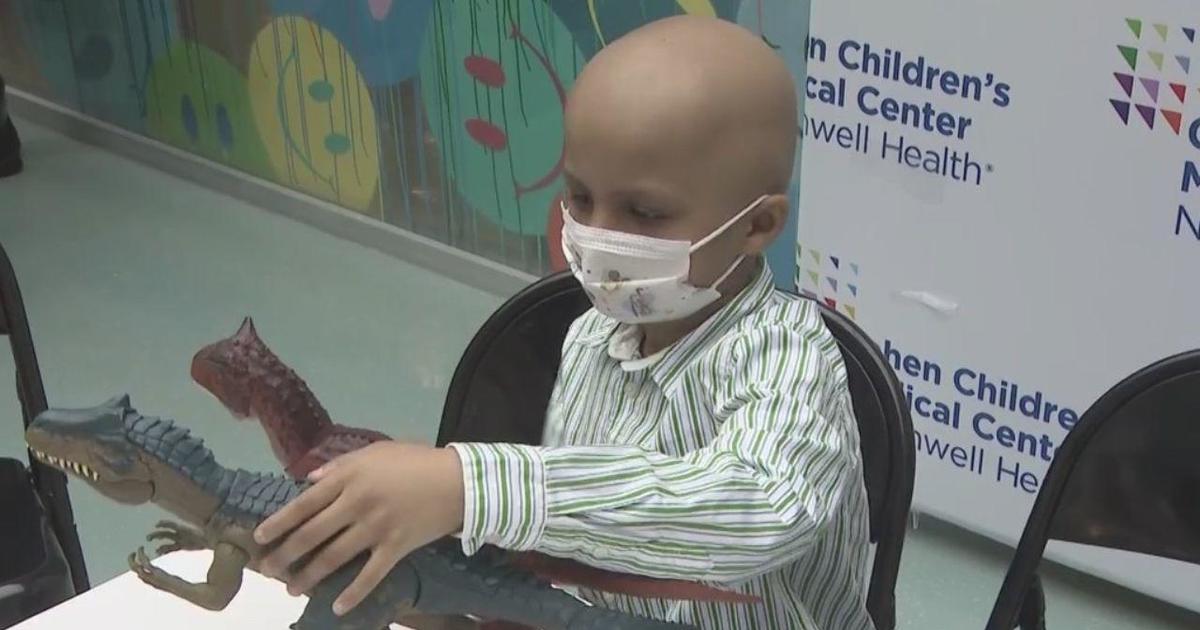HealthWatch: Home Genetic Testing
NEW YORK (CBS 2) -- October is Breast Cancer Awareness Month. Experts tell us family history is an important factor in prediciting your personal risk. Yet another way to predict your risk of cancer is causing controversy. CBS 2HD's Dr. Max gomez reports.
The controversy concerns over-the-counter genetic tests that claim to be able to predict your risk of many diseases. They helped one young mother, but are they right for you?
Jill Steinberg recently had radical surgery. She had both her breasts removed as a preventative measure.
The 31-year-old mother had the mastectomy because she has a breast cancer gene mutation, BRCA1. It gives her an 80-percent risk of getting the disease during her lifetime.
"It's that or cancer. What do you want? It's a small price to pay," said patient Jill Steinberg.
Surprisingly she didn't learn about the gene from her doctors. She doesn't have a strong family history of breast cancer so they didn't recommend genetic testing.
Instead, her husband bought home DNA test kits after reading about them on Twitter.
"I thought it would be more of a fun thing to do," said Jon Steinberg.
The results came by e-mail. "I clicked on it. I saw the results that she's a trait carrier and my heart sort of sunk," said Jon Steinberg.
Commercial genetic tests came under scrutiny by the government this summer. The concern is that the results can be misinterpreted. Right now, no government agency regulates this new industry, but the company that makes Jill's kit plans to work with the FDA to make sure the results are clear and accurate.
After the learning the news, the Steinbergs got genetic counseling, double-checked the accuracy, and developed a plan with doctors.
But not everyone can afford to do that. "If they get this information without knowing what their choices are, it can be a really devastating blow," said Dr. Freya Schnabel of the NYU-Langone Medical Center.
"If you're getting a genetic test, I think you need to be prepared for the results," said Jill Steinberg.
BRCA1 and BRCA2 mutations also put people at a high risk of developing ovarian cancer. That's why women with those mutations are often advised to also have their ovaries removed after they're done having children.
The point here is that the test results come via e-mail or snail mail with no counseling as to what they mean and don't mean and what you should do.
The Steinbergs were educated enough and had enough money to figure it out but many people may not be so lucky.
So is it really true that no one is regulating these tests? Not exactly. New York State has blocked most genomic testing companies from operating here without a doctor's prescription. And the FDA has stopped the sale of tests in drugstores and over the internet, ruling that the tests are medical devices and must meet the same scientific standards.
The problem is lack of counseling and that they over-promise what they can predict. It will happen eventually, but not yet.



